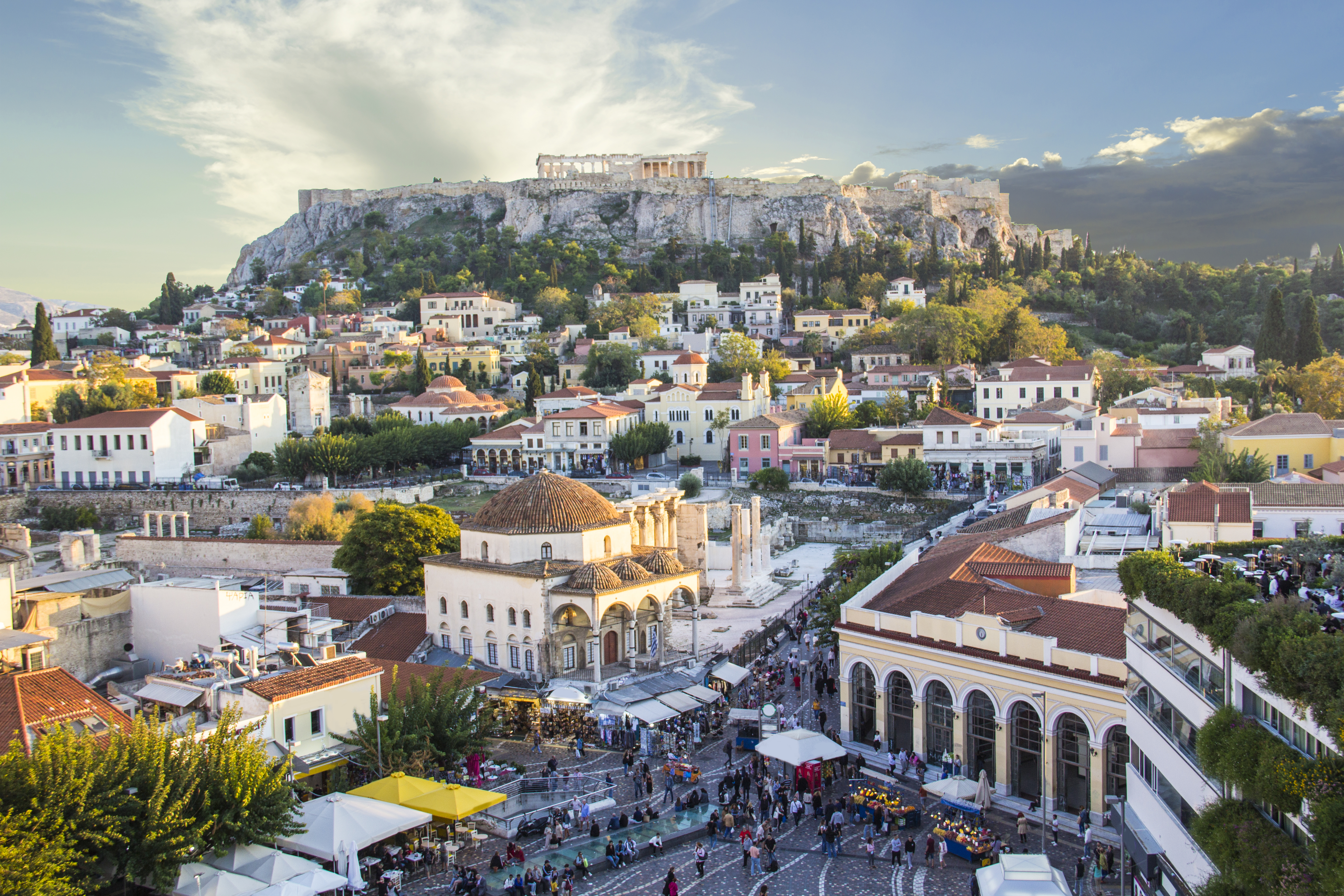ABOUT ATHENS
Athens, the oldest capital in Europe with a history spanning over 3,400 years, has witnessed a diverse array of governance in its 4,000-year existence, ranging from monarchy to democracy, socialism, capitalism, and communism. In mythology, Poseidon could have been the city’s patron, but Athena’s gift of an olive tree solidified her as the guardian.
While the ancient Olympic Games unfolded in Olympia, Athens hosted the Panathenaic Games since 566 B.C., establishing the first known democracy around 500 B.C. This system involved eligible citizens directly participating in law voting. Athens takes pride in its cultural richness, boasting 148 theater stages, surpassing the combined total of the West End and Broadway.
Despite not consistently being Greece’s capital, Athens possesses a profound cultural and architectural legacy. The Acropolis has faced challenges throughout its existence, and the Athens Metro construction for the 2004 Olympics unveiled unexpected archaeological treasures. The city’s sidewalks underwent a modernization effort led by Athens’ first female mayor in 2003.
Athens stands as a testament to millennia of architectural evolution, featuring styles from Greco-Roman to Neoclassical to modern. The marathon event, introduced for the modern Olympic Games in Athens, commemorates the run of Greek soldier Pheidippides. Athens holds the distinction of being the first European Capital of Culture, a recognition attributed to Melina Mercouri and Jack Lang. While lacking a contemporary art museum until recently, the National Museum of Contemporary Art, or EMST, now enhances Athens’ cultural landscape following renovations.
Near the conference hotel, you’ll find diverse attractions:
- Vouliagmeni Lake: A therapeutic natural wonder on the south coast, known for its rare geophysical features.
- New Acropolis Museum: Situated at the foot of Acropolis Hill, it houses 4000 artifacts, offering a comprehensive exploration of Greek architecture and ancient sculptures.
- National Gardens: Established in 1923, these gardens provide a tranquil escape with vibrant plant life and statues, away from the bustling city center.
- Temple of Olympian Zeus: Dating back to 515 BC, this temple dedicated to Zeus Olympios features 15 standing columns, serving as a reminder of ancient Greek history.
- Temple of Poseidon: Perched on a rocky hilltop in Sounio, this iconic sanctuary dating back to 44 B.C. offers a breathtaking sunset view over the sea.
- Parthenon, Acropolis: Built in 447 BC in honor of the goddess Athena Parthenos, the Parthenon is a globally recognized monument.
- Odeon of Herod Atticus (Herodeion): Constructed around 161 A.D. by Herodes Atticus, this semi-circular amphitheatre at the base of the Acropolis is renowned for its exceptional acoustics, hosting concerts and performances.
- Athens Concert Hall (Megaron): Opened in 1991, Megaron has become a vital cultural center in Europe, renowned for its superb acoustics and hosting performances by world-famous artists.
- Greek National Opera: Promoting Lyric Theater since 1940, the Greek National Opera offers opera, ballet, and concerts. It will soon move to a new multi-use venue, considered an architectural marvel.
- Glyfada: Embrace the glamorous ambiance and stylish lifestyle of Glyfada, known for its design boutiques and specialty shops along the Athenian Riviera.
- Athens Downtown: Explore chic neighborhoods like Kolonaki and bustling streets like Ermou, Panepistimiou, and Voukourestiou in Athens downtown. Indulge in shopping for everything from homeware to traditional Greek products and famous fashion brands.


